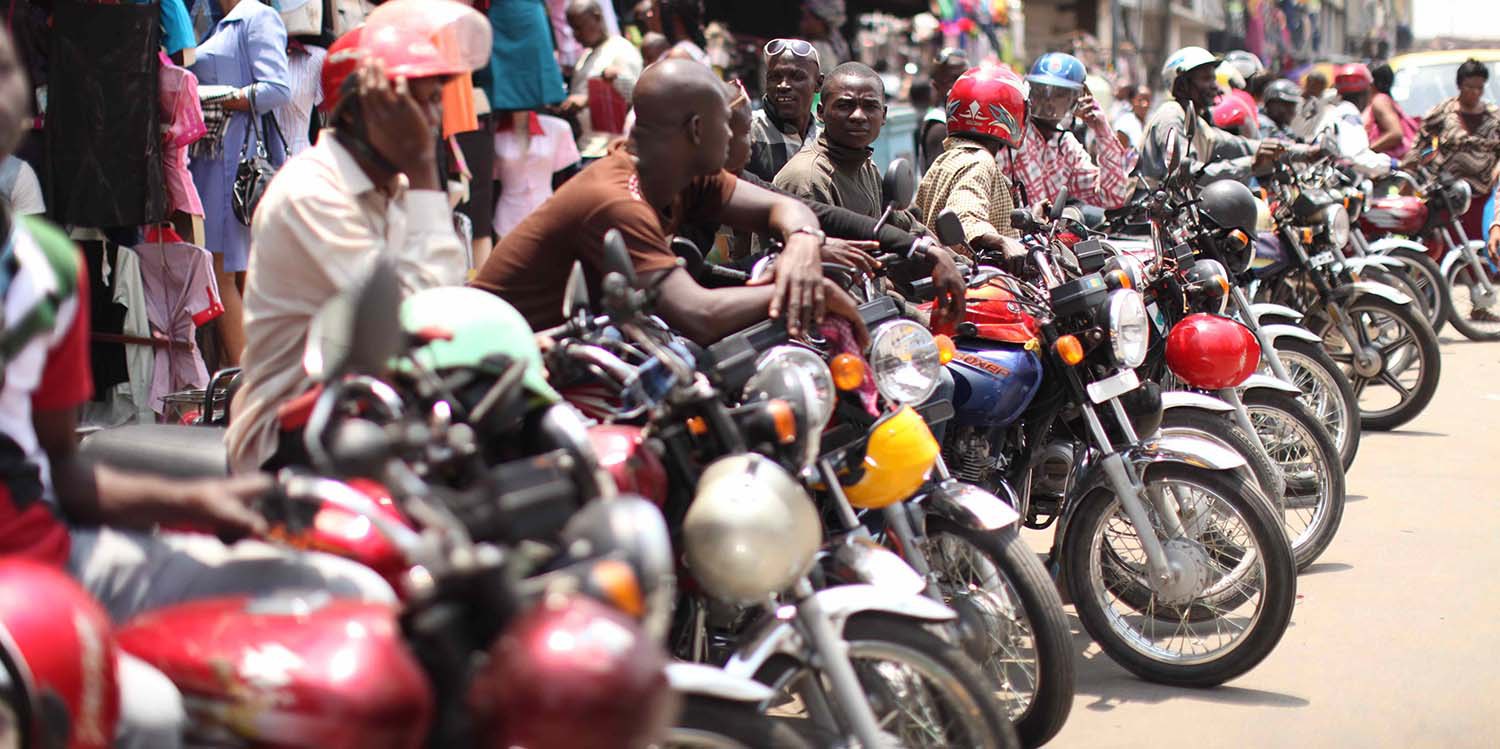We need holistic solution to menace of okada riders
The Lagos State government implemented its ban on the use of motorcycles for commercial transportation in six local government areas on June 1, 2022, an uncomfortable but necessary measure to curb the menace of okada riders in the commercial city. Though it would not be the first time the state government would ban commercial motorcyclists, […]

FILE PHOTO: Motorcycles operators
The Lagos State government implemented its ban on the use of motorcycles for commercial transportation in six local government areas on June 1, 2022, an uncomfortable but necessary measure to curb the menace of okada riders in the commercial city. Though it would not be the first time the state government would ban commercial motorcyclists, the decision to involve multiple security operatives in the enforcement of the ban demonstrates the seriousness of the government’s resolve this time around. On the first day of the ban, commercial motorcyclists who tested the will of the government had their machines, about 200 in number, confiscated and destroyed.
Justifying the ban, Lagos State Governor Babajide Sanwo-Olu said, “We are now directing a total ban on okada activities across the highways and bridges within these six local governments and their Local Council Development Areas, effective from June 1, 2022. This is a phased ban we are embarking on this period, and we expect that within the short while when this ban will be enforced, okada riders in other places where their activities are yet to be banned can find something else to do. We have given the notice now and we expect all commercial motorcycles plying the routes in the listed councils and areas to vacate the highways before enforcement begins. The enforcement will be total.”
The ban follows a national outrage over lawlessness exhibited by motorcyclists. For instance, on May 12, 2022, commercial motorcyclists killed and burnt a sound engineer, identified as David Imoh, in Lekki area of Lagos in a mob attack. Few days later, on May 19, 2022, commercial motorcyclists went berserk in Festac area, attacked policemen who were on duty to enforce the ban, killing one of them. In Abuja, the Federal Capital Territory (FCT), commercial motorcyclists caused mayhem in Deidei furniture market, destroying goods worth millions of naira in an uncontrolled mob attack on traders and businesses over an accident involving a motorcyclist. On May 30, 2022, another mob of commercial motorcyclists, rioted at Same Global Estate in Lokogoma area of the FCT, during which they destroyed some buildings over the death of their member in an accident.
Apart from mob actions, the recklessness of okada riders has led to the death of many Nigerians in their prime. In Lagos State, for instance, the Commissioner for Information and Strategy, Mr Gbenga Omotoso, reeled out gory statistics showing that 680 people were killed and 250 injured in about 1,500 accidents involving motorcyclists and tricycle riders, between 2015 and 2019. Many states in Nigeria have recorded similar bad reports on account of accidents and fatalities involving commercial motorcyclists. The reasons for these accidents are not far-fetched. The majority of the operators are either illiterate or semi-literate, and sometimes indulged in drug abuse. Without being trained on road traffic codes and without any form of driving license, they ride recklessly, often against traffic on congested intra-city roads. They overtake slow-moving vehicles on any side of the road without giving any form of warning, and most of the fatalities are caused by their collision with cars, buses and even articulated vehicles.
The country has endured the unnecessary and avoidable deaths from the menace of commercial motorcyclists for years, as leaders have been half-hearted in tackling the problem. Primarily, there must be a political solution to this problem, because politicians are instrumental to the acquisition of motorcycles by okada riders, as most of the riders received the vehicles as compensation for providing support for many politicians, mainly at the grassroots. Secondly, commercial motorcyclists are filling the yawning gap created by the haphazard implementation of government policies in the transportation sector. Grand promises about acquisition of mass transit buses and light rail projects to ease transportation in our cities for the burgeoning population have continued to be a mirage. This failure has made fast-moving commercial motorcyclists indispensable, not only in our urban centres, but also in rural areas with inaccessible and unmotorable road tracks.
At the moment, banning commercial motorcylists may be a popular step to take, but there is the need to fashion out a long-term solution to the challenges they have posed across the country. Because they have become an integral part of our transportation system, it is necessary to formalize their operation, first by ensuring that every commercial motorcyclist passes through a Federal Road Safety Corps (FRSC) test and is properly licensed. Their motorcycles must be roadworthy before they are put on our intra-city roads, while riders should be tested for substance and alcohol abuse at random. Perhaps, it is necessary to ban the motorcyclists from operating in Nigeria’s transport system, but the measure must be taken with care, as there are thousands of commercial motorcyclists who operate responsibly and live on the daily income from it. A holistic solution is what is needed.
